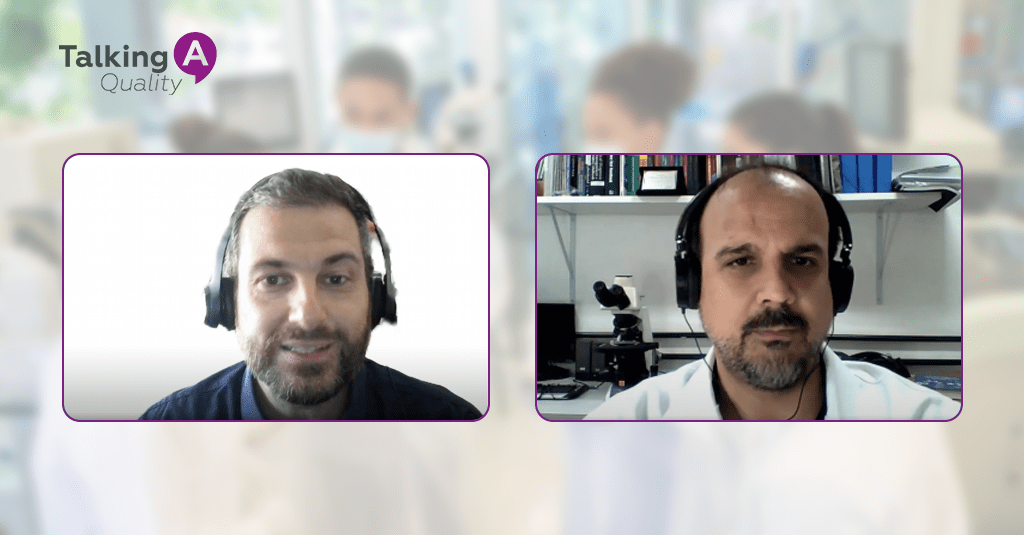In an interview with “Talking A,” the Director of Education at SBPC/ML emphasizes the importance of the course conducted in partnership with Controllab.
The Brazilian Society of Clinical Pathology and Laboratory Medicine (SBPC/ML) and Controllab have joined forces to provide a pioneering learning and development opportunity for future professionals in the laboratory sector. In an exclusive partnership, they conducted the Quality Control Course for Medical Residency in Clinical Pathology.
Recently, “Talking A” interviewed one of the students from the training, who emphasized how essential the initiative was for their development. Now, the educational manager at Controllab, José Poloni, spoke with Dr. Leonardo Vasconcellos, Director of Education at SBPC/ML and one of the academic coordinators of the course for the residents.
During the interview, Dr. Leonardo highlighted important aspects of the program, which had a substantial workload totaling 810 minutes, and emphasized that it was designed to strengthen safety and analytical accuracy in clinical laboratories:
– There were nine classes covering everything from statistical fundamentals to internal and external control, as well as benchmarking of laboratory indicators. We discussed analytical results, in addition to practices for Point-of-Care. Although medical residency programs address the principles of quality, hearing more theory, with the practical examples presented by Controllab’s team of experts, was a huge benefit for the residents, he emphasized.
Training Highlights
Dr. Leonardo commented on the positive impact of the course on the training of future specialists and emphasized that laboratories are composed of processes:
– The course greatly contributed to the training of professionals, reminding us that a laboratory is a process. A large part of the exams is done through automation, so ensuring that the analytical system is functioning according to best practices greatly increases the credibility of the results, he stated.
Furthermore, the specialist also highlighted the importance of Controllab’s involvement in the success of the educational initiative:
– We are very pleased with this partnership. Controllab is a reference for us, and we hope that this first course was just the beginning of a long and successful partnership, he commented.
Impact on Career and Professional Practice
According to Dr. Leonardo, the course offered participants a more comprehensive and detailed understanding of the tools that make up quality control:
– The clinical laboratory, when releasing a test result, needs to be sure that it was done correctly and accurately reflects reality. And, since everything is highly systematized, for the clinical pathologist to be certain that their analytical system is working perfectly, they must rely on internal control and proficiency testing, which allows for comparison with other peers. So, regardless of the laboratory’s size, pathologists need to have this knowledge, he explained.
The specialist pointed out that healthcare, as a whole, is always expanding, and this reality also applies to laboratory routines:
– The laboratory of the past conducted 200 or 300 tests. Nowadays, it performs thousands. So, there is always a new methodology or different laboratory tests. We need to have diagnostic accuracy. The professionals working in this field also need to evolve. It is a continuous education. The professional gains a foundation of knowledge and then refines it over that base, he emphasized.
Watch the approach now
Click here and see how this Talking About Quality helps laboratory professionals broaden their view on quality, highlighting how understanding the theoretical foundations of quality control impacts practice!
Take advantage and subscribe to Controllab’s YouTube channel to access newly published content firsthand.

